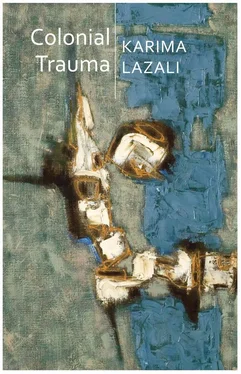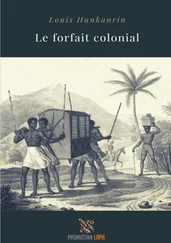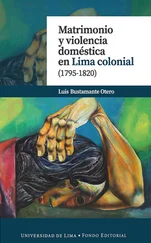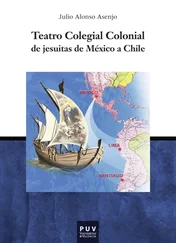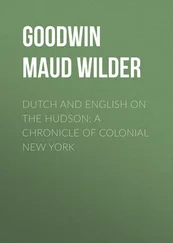But does this allow us to conclude that Argentina’s history and Algeria’s are somehow homologous? Definitely not. In this, her second book, written after La parole oubliée (2015), Lazali unravels the elements of Algeria’s specificity: the traces of trauma and the psychic transpositions of the destruction that French colonialism left in Algerian society.
French colonialism and its dramatic historical consequences – events that were scandalous in their scale, their cruelty, and their persistence – left an indelible mark on Algerian history. This history is also marked – and this makes it radically different from the history of Argentina – by the absence of investigations into and justice for the innumerable crimes committed under colonialism, during the War of Liberation and the civil wars, and even today: disappearances, genocide, the mutilation of bodies, expropriations, and the disappearance of children. These are deaths, Lazali indicates, that are deprived of bodily integrity, becoming unrecognizable. The disappearance of persons is thus not only a matter of the spectral condition of what cannot be seen; it also results from what is excessively visible but not identifiable: disfigured and mutilated bodies, deprived of any possibility of being granted an identity.
If we could think of reality itself as a laboratory functioning at the planetary scale, then comparing the subjective effects of the systematic disappearance of persons in two countries, Argentina and Algeria, might offer us definitive proof of the place of thirdness that justice creates in the ordering of social bonds. As is well known, in Argentina, the Trial of the Juntas ( Juicio a las Juntas Militares ) began in 1985, under the new democracy formed after the end of the dictatorship – which lasted from 1976 to 1983, used torture as a systematic method for social control, and disappeared 30,000 people. The trial led to the sentencing of commanding officers. The trials of hundreds of others responsible for state terrorism during the dictatorship continue even today (marked by interruptions and political vicissitudes that are too numerous to discuss in detail in this context), in cases of crimes against humanity that are still pending or that have already concluded in cities throughout the country. This process prompted me to write the following about the statements made during these trials:
“And one day they didn’t come back,” some witnesses say, family members of the disappeared. … But when, on what day , did they not come back? How can we indicate that day , if all days until today are in fact that day? How can we define the absence of absence? Can we understand that those responsible are being tried for “disappearances” and not for “deaths”? What do we need in order to name the unnameable, identify the unidentifiable, specify the unspecifiable, locate the unlocatable? How can we date and provide coordinates for what never took place? How could the witness acknowledge the existence of a crime that was never definitively committed, because it keeps being committed? (Wikinski, 2016, p. 88)
In Algeria, as Lazali explains, the fate of the bodies that were torn apart or disappeared has never been investigated. Nor have there been investigations to determine who was responsible during each of the phases in which these crimes took place.
Lazali lucidly describes terror as a psychic state that, unlike trauma, does not allow for forgetting or repression, that does not lead to the emergence of a new subjective position, but instead blurs the boundaries between the psychic apparatus and the biological body, between the singular and the collective, between the inside and the outside. Terror remains untethered; it cannot be circumscribed. It is perhaps a matter of an encrustation without a subject, of a devastation that can even prevent the recognition of the state of terror by the subject who is undergoing and suffering from it.
The author can distinguish between trauma and terror in this way and can demonstrate that the notion of trauma is insufficient for explaining the effects of colonial violence because she fluently traverses the fields of subjective singularity, collective phenomena, the clinic, literature, and politics, and because she clearly identifies present, historical, and trans-subjective phenomena. In this way, she reveals the traces of colonialism on both the social and subjective levels, considering an event that was by all accounts unlimited in its effects, one that resounds deafeningly in the subjective journeys of many generations throughout Algerian history. We do not find in Lazali’s work any fictitious distinction between the individual and the collective; nor do we find a failure to distinguish between these realms. Instead, we confront a profoundly Freudian way of thinking in which an articulation between these spaces is constantly produced, in a fabric of numerous determinations that are always interwoven with one another.
In this sense, Lazali can be seen to be indebted to the work of Frantz Fanon, who, writing while events were still unfolding, was able to address the implantation of alienation in the psyches of the colonized as well as the improbable work of subjective decolonization that it entailed.
There will always be an expropriation of the self when colonization is imposed. What cannot be spoken of in the space of psychoanalysis, the subjective dimension in history, the unthought that finds expression in literature: it is in these recesses, Lazali tells us, that we can perhaps find the keys for understanding the subjective effects of a history of devastation whose beginning will soon mark its two-hundredth anniversary.
Many figures of the negative – negation, denegation, foreclosure, the “hole,” disavowal, repudiation – can be adduced to give an account of this blank, or what is at times, according to Lazali, a “black silence” that marks what “it is impossible to forget.”
The author refers to Francophone Algerian literature – a corpus that includes several clearly autobiographical works – to glean what cannot be said from the critical deviations ( détournements ) of this literature’s language and from its use of transliteration. Deviation for its own sake becomes a value, a process that makes “the untranslatable” into an object to be transmitted. Lazali also finds resources in these novels that can be used to oppose the censorship of thought and language that has marked colonial and postcolonial history. “How could psychoanalysts work without having read them?” Lazali might thus wonder, paraphrasing Benjamin Stora.
Lazali reads the works of Kateb Yacine, Nabile Farès, Jean El Mouhoub Amrouche, Malek Haddad, Yamina Mechakra, Chawki Amari, Rachid Mimouni, Mansour Kedidir, Mohammed Dib, Samir Toumi, Amin Zaoui, Kamel Daoud, Mouloud Feraoun, and Albert Camus in order to shed light on the zones rendered invisible by colonialism and by the leveling “ mise sous totalité ” of postcoloniality.
If, having read this extraordinary book, we had to choose one word with which to express compellingly the effects of colonialism on both sides of the Mediterranean, we would surely choose the French word effacement , meaning erasure. This is an erasure that is political in its origins, of course, begun by French colonialism, with its need to deny the fact that it deposited this abject remainder of the monarchy, which was “exported” to the colony. Identity, language, tradition, genealogy, patronyms: all were demolished as if Algeria had no history. But Lazali suggests that the erasure also includes internal and fratricidal confrontations and postcolonial state terror. This was an erasure or non-inscription, then, of all genealogy, alterity, and difference, for, Lazali suggests, such heterogeneity threatens the work of constructing a “we,” the coerced effort to create a uniform national essence or way of being that begins with the Algerian War of Liberation.
Читать дальше
